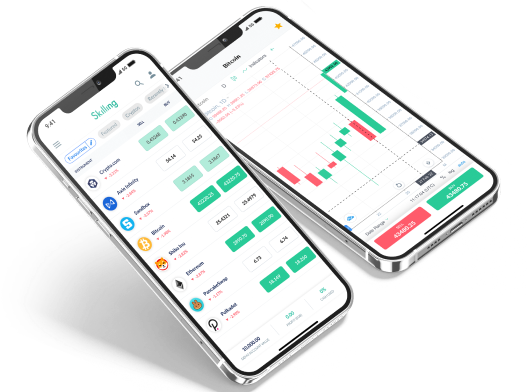

Whenever you're trading, whether it's Bitcoin or any other asset, you'll come across the term "PNL," which stands for Profit and Loss. PNL is a key measure that shows how much profit you’ve made or lost on your trades. For example, if Bitcoin price is currently trading at $60,000 and sell it at $65,000, your PNL would be the profit from that trade. Understanding PNL helps you evaluate your trading performance and make better decisions. Keep reading to learn more including how to calculate it.
PNL meaning in trading
PNL, or Profit and Loss, shows how much money you’ve gained or lost from your trades. In trading, it helps you measure the success of your investments. By calculating your PNL, you can see how well your trades are performing and make decisions about buying or selling.
PNL example and how to calculate it
Let’s use gold (XAUUSD) as an example:
1. Initial trade: Suppose you buy 1 ounce of gold when it’s priced at $2,000. You spend $2,000 to buy this gold.
2. Selling trade: Later, the price of gold rises to $2,200. You sell your 1 ounce of gold at this new price.
3. Calculating PNL:
- Buying price: $2,000
- Selling price: $2,200
- PNL calculation: Subtract the buying price from the selling price.
- PNL : $2,200 (selling price) - $2,000 (buying price) = $200
In this example, your PNL is $200. This means you made a profit of $200 from the trade. To calculate PNL, just subtract what you paid from what you received when selling.
Loss example:
- Initial trade: Suppose you buy 1 ounce of gold when it’s priced at $2,000.
- Selling trade: However, the price of gold drops to $1,800, and you decide to sell at this lower price.
- Calculating PNL: Subtract the selling price from the buying price.
- PNL: $1,800 (selling price) - $2,000 (buying price) = -$200
In this case, your PNL is -$200, indicating a loss of $200.

Difference between realized and unrealized PNL
| Aspect | Realized PnL | Unrealized PnL |
|---|---|---|
| Definition | Profit or loss from completed trades. | Potential profit or loss on open trades. |
| Status | Confirmed and fixed upon closing the trade. | Not confirmed; depends on current market price. |
| Example | Bought gold at $1,800 and sold at $2,000. Realized PnL = $200 profit. | Bought gold at $1,800; current price $2,000. Unrealized PnL = $200 profit (if the position is still open). |
| Impact on portfolio | Affects cash balance and overall portfolio value. | Does not affect cash balance until the trade is closed. |
| Reporting | Reflected in financial statements and trading accounts. | Reflected in portfolio reports and trading platforms as potential gains or losses. |
Experience Skilling's award-winning platform
Try out any of Skilling’s trading platforms on the device of your choice across web, android or iOS.

In summary, realized PnL is the profit or loss from trades that have been finalized, while unrealized PnL reflects the potential gains or losses on open trades, subject to change until the position is closed. Understanding both helps traders track their performance and make informed decisions.
Summary
While PNL (Profit and Loss) is essential for tracking trading performance, traders should be aware of the difference between realized and unrealized PnL. Realized PnL represents the confirmed gains or losses from closed trades, affecting your actual cash balance. In contrast, unrealized PnL reflects potential gains or losses from open positions and can fluctuate with market prices. Understanding both types of PnL helps in evaluating trade effectiveness and managing investments wisely.
Source: coinex.com
Are you a Skilling client yet? Open a free Skilling CFD trading account today and trade 1200+ global assets including cryptocurrencies, stocks, commodities and more with very low spreads.











